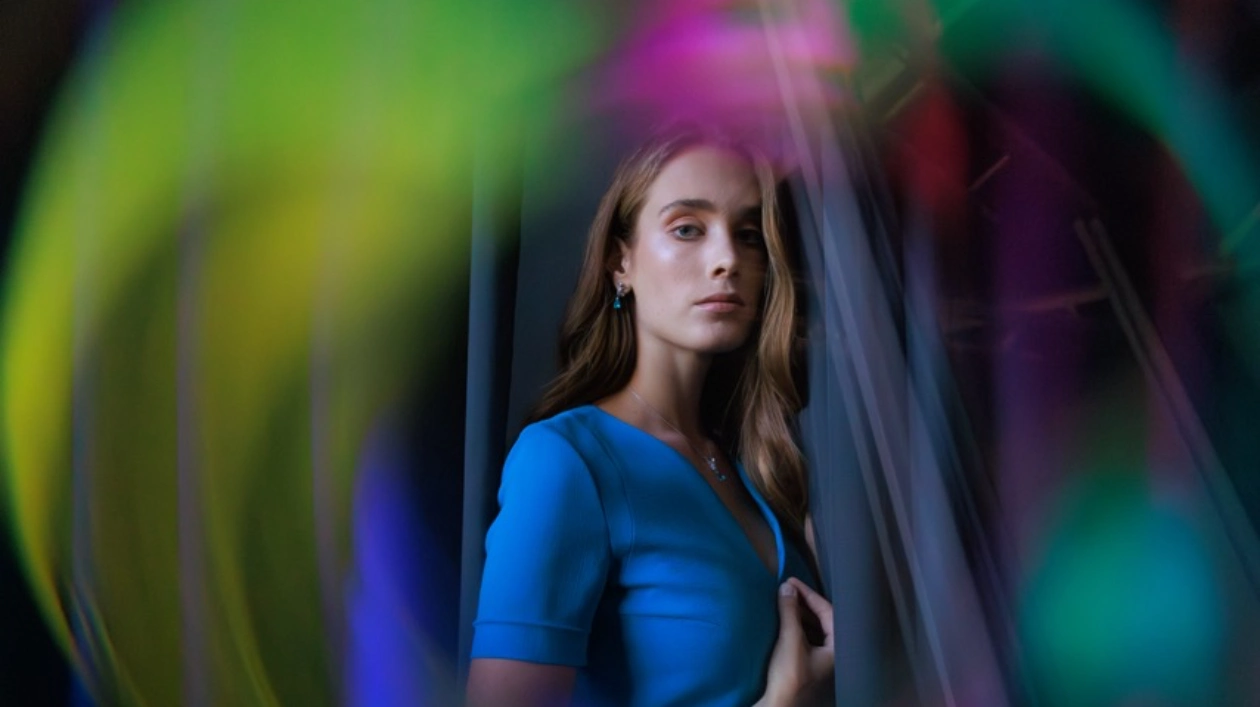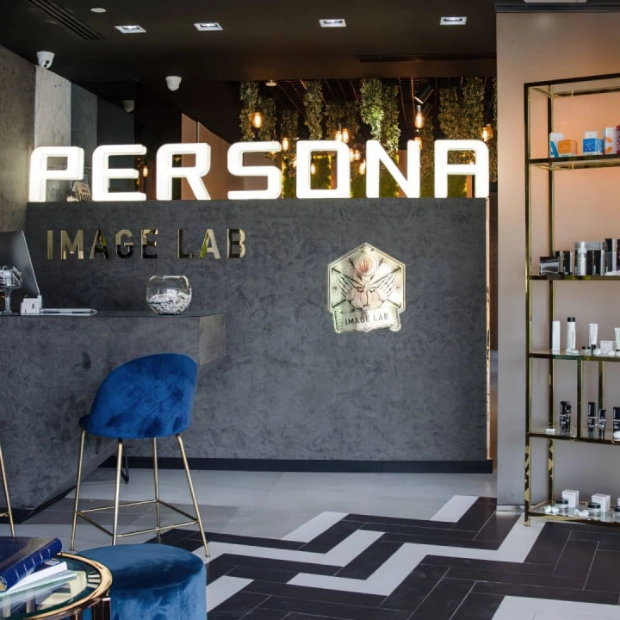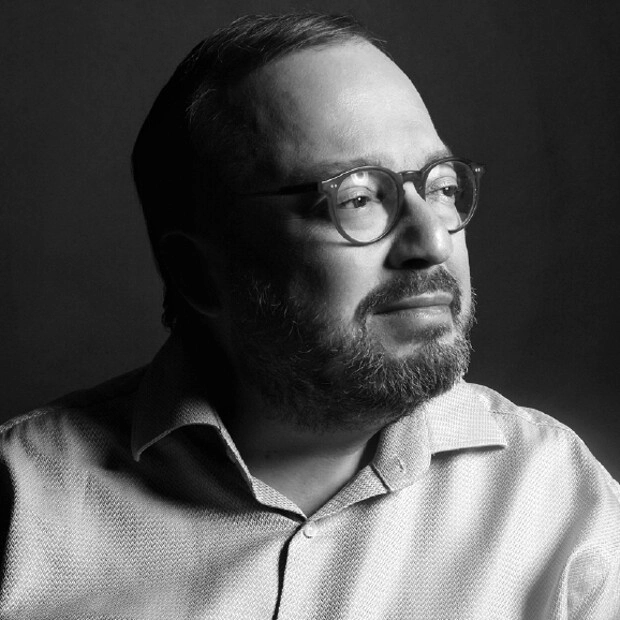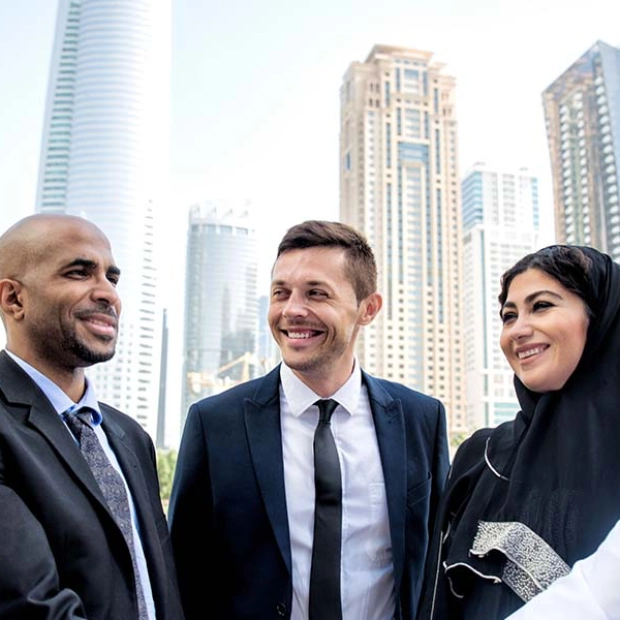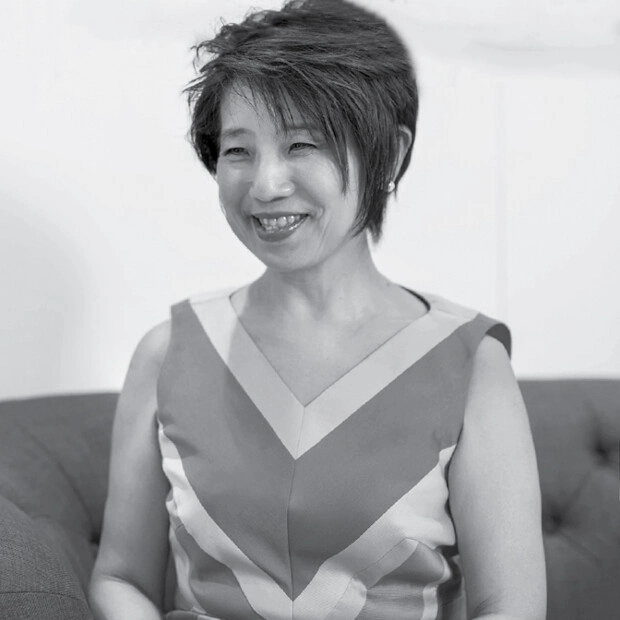To encompass the world
Many regard the phenomenon of indigo children as a myth. Nevertheless, each generation sees the emergence of individuals with atypical thinking and talent that manifests from an early age. Like other gifted children, they possess high intelligence, beginning to speak, read, count, and write at a young age. Moreover, they exhibit a developed willpower. The combination of these qualities, coupled with the guidance of brilliant mentors, has made possible a startup that secured funding from the California Institute of Technology. Andrea Olsen, at just 19 years old, shares her story of becoming the creator of the business idea Luria and transforming AI into a genuine digital doctor.
From a young age, I was captivated by science, particularly neurobiology. Questions about the human brain and its optimisation always piqued my interest. Health, in general, was a crucial topic for me. So, when the opportunity arose at Caltech (California Institute of Technology) to present a business idea, I couldn't let it slip through my fingers. One of the angel investors, Bill Gross, offered a hundred thousand dollars for the best idea. I already had a concept that emerged during the pandemic, and I decided to take the plunge.
My journey to Caltech was quite the adventure. I had applied to several universities and was awaiting responses. On the eve of my birthday, when the results were due, I was certain I wouldn't get into any of them. But when the letter from Caltech arrived, I decided to open it with my mum. We were on the phone, and I remember her stopping in the middle of a shop to share this moment with me. Upon opening the letter and seeing "You are accepted", I experienced a mix of joy and trepidation. The realisation that a new opportunity had presented itself was incredible. I understood that if I didn't seize it, I'd miss a chance that could alter the course of my life. Moreover, out of eighty contenders vying for the best business idea, I secured second place. My idea received funding, and thanks to it, I was invited for an internship at Caltech, where I was also granted a scholarship.
Relocating to another country was no small decision, but I knew it was a step towards future success. The fear of the unknown gave way to the conviction that opportunities don't present themselves without reason. Choosing Caltech turned out to be one of the best decisions of my life.
The California Institute of Technology, or Caltech, became more than just a place of study for me; it became a true home for realising my ambitions and dreams. Here, among a small student body, I found the opportunity for productive interaction with professors and access to cutting-edge laboratories. This is what sets Caltech apart from many other universities worldwide. California isn't just about sunny coasts and warm weather. It's a place where the spirit of entrepreneurship and innovation reigns supreme. Here, they support start-ups and new ideas, which perfectly aligns with my aspiration to create my own venture. Caltech reminds me of the Massachusetts Institute of Technology, but with the unique atmosphere of the West Coast.
Historical figures such as Albert Einstein and Robert Oppenheimer left their mark on this university. Einstein lived on campus, and his works are still preserved here. Oppenheimer, whose life was recently immortalised in film, worked between Caltech and Berkeley. These great minds inspire me every day as I walk the same paths they once trod.
Caltech gave me the opportunity to become part of the history of great discoveries and inspired me to create my own. I'm confident that many more amazing discoveries and achievements lie ahead. It all began with a personal story: a close relative ended up in hospital, and doctors nearly harmed him by trying to administer anaesthesia that could have been dangerous due to genetic factors. I realised that many people face the issue of being prescribed unsuitable medicines. This led me to the idea of creating artificial intelligence that could analyse medical data and suggest safe solutions.
This idea became the foundation of my project. I aimed to create a system that would help doctors and patients avoid such errors. The artificial intelligence I'm developing collects information and analyses it from various angles. It's a challenge, but I believe in its necessity and usefulness.
Our algorithms are evolving, turning AI into a genuine digital doctor capable of analysing human health comprehensively and personally. Imagine uploading your medical data and our artificial intelligence processing it as if a panel of leading specialists were examining it. In a matter of seconds, this digital doctor assesses your condition and provides recommendations to prevent potential illnesses. It analyses test results and suggests which additional tests might be useful for risk assessment.
Like a family doctor always ready to answer your questions, our AI accumulates vast amounts of information, analysing them with precision and depth. We've already begun training our artificial intelligence. It's not just an interface like ChatGPT, but a complex system of algorithms and neural networks working behind the scenes. The more data it receives, the more accurate its recommendations become.
Each uploaded analysis undergoes thorough scrutiny. The AI highlights problematic and normal indicators, providing detailed explanations for each. For instance, it can discuss the state of haemoglobin or cholesterol levels and suggest actions to improve these parameters. Various neural networks process different types of data: some specialise in blood analysis, others in saliva. By combining the results, they form a report with practical recommendations for improving health.
We're already preparing to release the first version of our product, an MVP (Minimum Viable Product). It's demonstrating excellent results and continues to learn from new data coming in from users. Thus, each person receives personalised advice on their health, and the system becomes increasingly accurate and useful.
We carefully check all regulations in the countries where we plan to release our artificial intelligence. Lawyers, medical professionals, and moderators participate in this process to guarantee the validity of the answers it provides. Our AI is trained on medical data, analysing the most authoritative journals such as Nature, Cell, and Science. It processes thousands of articles daily, constantly improving and evolving. Our goal is to help people, so we engage experts to verify the accuracy and safety of recommendations.
The main objective is to ensure that every Luria user has the opportunity to receive treatment that truly helps, prolongs life, and does no harm. We strive to enable everyone to understand their health status and make the right decision. The application's name was chosen in honour of Salvador Luria, an Italian microbiologist whose experiments inspired us with their simplicity and beauty. I had the opportunity to replicate his experiment at Caltech and was struck by how elegantly complex ideas can be conveyed to people.
Luria's experiments concerned antimicrobial growth and allowed for assessing the rate of bacterial reproduction in laboratory conditions. Although his work is not directly related to human health, it shows how important simple solutions are in science. Before him, many researchers tried to solve this problem, but it was Luria who found the key to the puzzle.
There's a specific person to whom I owe my inspiration in work. At 14, I began interning with Alex Zhavoronkov, a major businessman in the field of biotechnology and artificial intelligence. He became a true mentor to me. Working with him, I studied brain cancer and discovered four new genes that could form the basis for drug development. This led me to a conference where I spoke before a hall of scientists and investors. At 15, this was a significant event for me — Forbes took notice of my work. I realised that all barriers are surmountable if you truly strive for a goal. As Nike says: "Just do it". This realisation became an important discovery for me, pushing me towards further achievements.
My mentor Alex Zhavoronkov remains a true inspiration to me. He recently opened a laboratory in Abu Dhabi, where the process of creating drugs and preparing them for clinical trials is fully automated. This became possible thanks to funding, and now it's the headquarters of his company, Insilico Medicine. The opportunities and goals that have emerged here are impressive. For me personally, Alex opened up the world of biotechnology and showed its possibilities. His tireless drive and desire to implement new technologies are impressive. The laboratory in Abu Dhabi is a vivid example of his courage and readiness to try new things. He doesn't have the word "no" in his lexicon - only "yes, I want to try". This can't help but inspire admiration. If we're talking about science, I'm guided by Zhavoronkov's approach to science, and in terms of business, Steve Jobs is a sort of idol for me. I'm striving to create something similar now in Dubai.
Launching a project in Dubai, I'm still in the exploration stage: registration, studying the local market. I'm amazed by people's openness to artificial intelligence and new technologies. They're literally grasping at the opportunities these innovations provide. I see many advantages and prospects specifically in Dubai and the United Arab Emirates. Plus, part of our team is already there. We're located all over the world: Dubai, USA, Russia, Norway, Belarus. This allows us to see the diversity of markets and opportunities. Dubai stands out especially for its rapid growth.
The international team of our project is focused on development. And of course, communication with mentors and advisors plays a significant role in my life. They come from different fields: medicine, artificial intelligence, business. Each meeting with them helps piece together the picture, understand how my decisions can affect different areas. I believe that having a mentor or someone ready to give advice is very important. Often, they appear in the most unexpected situations. For example, one of my mentors is a wonderful scientific researcher from George Mason University in the USA. We met during the pandemic when professors had more free time. I asked her to give a few lectures on oncology, and after ten sessions, we found common ground, discussing not only biology but many other topics as well.
To achieve goals, it's important to clearly envision where you're heading and why. This helps find ways to achieve them. My communication with mentors and advisors played a key role in choosing directions — from oncology to biotechnology. It's important for young entrepreneurs not to be afraid to share their ideas. Feedback is invaluable: it helps understand where to move next, who will use the product, and whether it's needed.
You need to find your strong side, what sets you apart from others. If you don't have one yet, you should start working on it. Of course, someone might hear your idea and start doing something similar, but you have the advantage of time. I see companies appearing that are similar to Luria, and I understand that thanks to an early start, I have a head start.
Entrepreneurship for me is an opportunity to create, to make something new and significant. It's not just business, it's a way to contribute to the world, help others, and possibly even change someone's life for the better. I realised that it's important to think broadly, going beyond the familiar. When you strive for more than what already exists, you open up new horizons for yourself. You need to go where people tell you: "It's impossible". It's in this direction that the boldest ideas are born. This approach opens doors to new opportunities and acquaintances that might otherwise have remained inaccessible. Every step in my life is a step up a mountain whose peak is still hidden from view. In the scientific field, I'm particularly proud that at fourteen, I managed to publish my first article in a high impact factor journal. This event became an important milestone that determined the further development of my career.
For all entrepreneurs, not only quantitative business indicators are important, but also qualitative aspects. Continuous development and openness to new technologies play a key role. As a researcher, I understand how important the quality of the created product is. It should really work and benefit people. This is what inspires and drives things forward.
Not only advisors but also reading the right books can help improve the qualitative aspect. David Sinclair in his book Lifespan: Why We Age and Why We Don't Have To explains in simple language how one can live long and stay healthy. This work became a real revelation for me — I realised that longevity and health are what really interest me. Along with this, I find inspiration in fiction. Ayn Rand in Atlas Shrugged reveals deep themes, teaches you to value one's thoughts and beliefs that shape your personality. Without a value system, neither science nor business makes sense. These books have left a significant mark on my life, and I sincerely recommend them to everyone.
You need to constantly update your knowledge, improving your qualifications. My example is an internship at a scientific foundation that invests in artificial intelligence and is located in Palo Alto, San Francisco. Such opportunities for self-development and career growth create ideal conditions for finding good mentors and reading the latest research. I'm nineteen years old, and there's still plenty of time ahead to finish what I've started. I have three years of study left at Caltech, and during this time we plan to develop the Luria project, adding new versions and functions. Personally, it's important for me to grow this startup to the level of a full-fledged business, possibly even a large company. I also intend to develop the business aspect. The idea of getting an MBA in America hasn't left me either.
Constant forward movement is my life principle. Goals for me are not endpoints, but steps on the path to new achievements. Each achieved goal opens up new horizons for me. I strive to develop in the field of medicine and biology, where I feel most fulfilled. There's a quote that always inspires me: "If you knew you could not fail, what would you do?" This question helps me make decisions in any situation. It serves as a compass on the path to dreams and achievements.
The credo of our company is "Be the driver of your health". It's a call to take responsibility for your health into your own hands, to become the driving force in this process. Our project has only recently begun to develop, but it has already attracted attention in more than 30 countries. We've been talking about it, looking for potential partners and clients. Our aspiration is to develop the business internationally: in Dubai, Russia, Norway, America. We want to go beyond one region and encompass the world.
